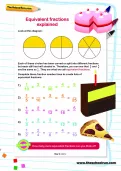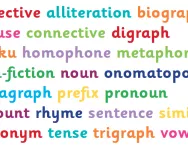Important update from TheSchoolRun
For the past 13 years, TheSchoolRun has been run by a small team of mums working from home, dedicated to providing quality educational resources to primary school parents. Unfortunately, rising supplier costs and falling revenue have made it impossible for us to continue operating, and we’ve had to make the difficult decision to close. The good news: We’ve arranged for another educational provider to take over many of our resources. These will be hosted on a new portal, where the content will be updated and expanded to support your child’s learning.
What this means for subscribers:
- Your subscription is still active, and for now, you can keep using the website as normal — just log in with your usual details to access all our articles and resources*.
- In a few months, all resources will move to the new portal. You’ll continue to have access there until your subscription ends. We’ll send you full details nearer the time.
- As a thank you for your support, we’ll also be sending you 16 primary school eBooks (worth £108.84) to download and keep.
A few changes to be aware of:
- The Learning Journey weekly email has ended, but your child’s plan will still be updated on your dashboard each Monday. Just log in to see the recommended worksheets.
- The 11+ weekly emails have now ended. We sent you all the remaining emails in the series at the end of March — please check your inbox (and spam folder) if you haven’t seen them. You can also follow the full programme here: 11+ Learning Journey.
If you have any questions, please contact us at [email protected]. Thank you for being part of our journey it’s been a privilege to support your family’s learning.
*If you need to reset your password, it will still work as usual. Please check your spam folder if the reset email doesn’t appear in your inbox.
What are home-school agreements?

A home-school agreement is a statement explaining your child's school's aims and values, its responsibilities towards its pupils, the responsibilities of the pupil's parents, and what’s expected of pupils. Since being introduced in September 1999, they have become part of the administrative process when a child starts the school.
What’s the benefit?
Research has consistently shown that active parental interest makes a great deal of difference to how well children do at school. Parents can help more effectively if they know what the school is trying to achieve and what they can do to offer support. Home-school agreements provide a framework for the development of such a partnership.


Start your child on a learning programme today!
- Weekly English, maths & science worksheets direct to your inbox
- Follows the National Curriculum
- Keeps your child's learning on track
The contents of the agreement will clarify what the school is trying to achieve, and the agreement will set out the role of the school, parents and pupils in this vital partnership.
What do home-school agreements contain?
Agreements vary from school to school, but they must meet certain statutory requirements laid out by the School Standards and Framework Act 1998. Home-school agreements should make a statement about the standard of education parents can expect at the school, such as the school's commitment to meeting the needs of children of all abilities and its targets for national curriculum assessments and exams. It should also talk about the ethos of the school.
The agreement is also an opportunity to remind parents that they are legally responsible for ensuring their children receive full-time, suitable education and that this requires regular attendance. The agreement will outline how parents are to notify the school if their child cannot attend school, as well as an expectation that parents will work with the school if attendance problems develop.
An outline of how and when communication should or is likely to take place is included in a section called ‘Information schools and parents will give to one another'. It should encourage parents to approach the school if they have any concerns, too. The general complaints procedure is also explained in the agreement to show how parents can go about raising issues they’re unhappy about.
Other areas that will be covered are guidlines around homework and disciplinary measures. Schools now have the power to prosecute pupils or parents who behave violently towards other pupils or members of staff, but the home-school agreement will make it clear what sort of behaviour is expected of pupils and where the boundaries are.
What home-school agreements cannot do
Home-school agreements cannot contain terms or conditions which would be unlawful or unreasonable, such as refusing to waive any requirement on school uniform in cases where the child cannot comply for religious reasons.
Other unacceptable demands might include asking parents to attend an excessive number of parents' evenings or to agree to make contributions to purchase expensive books or equipment.
Parents cannot be taken to court for breaches of the terms of the agreement. A child must not be excluded from school and nor should the school treat the child or parents in any adverse way because of the parent’s failure or refusal to sign a parental declaration. Indeed, schools cannot make parents sign the parental declaration before the child has been admitted to the school or to make the signing of it a condition of the child's admission to the school.








